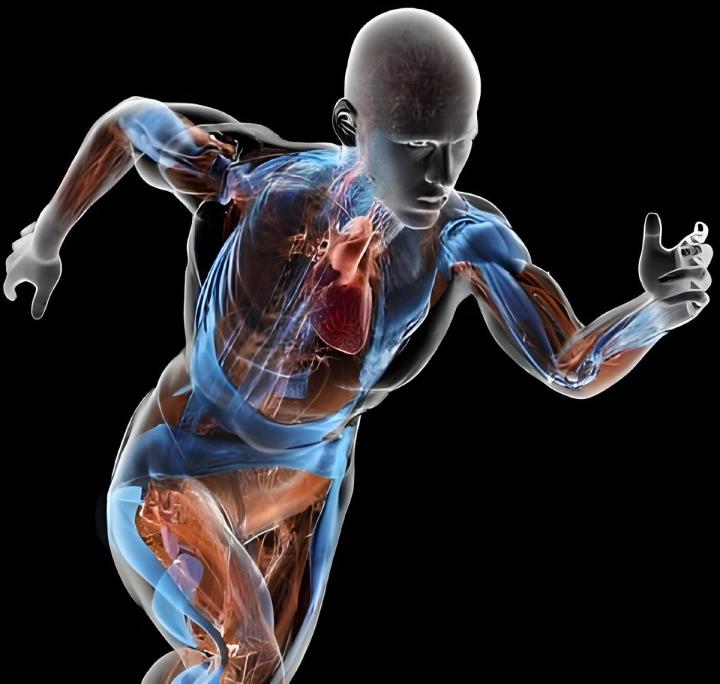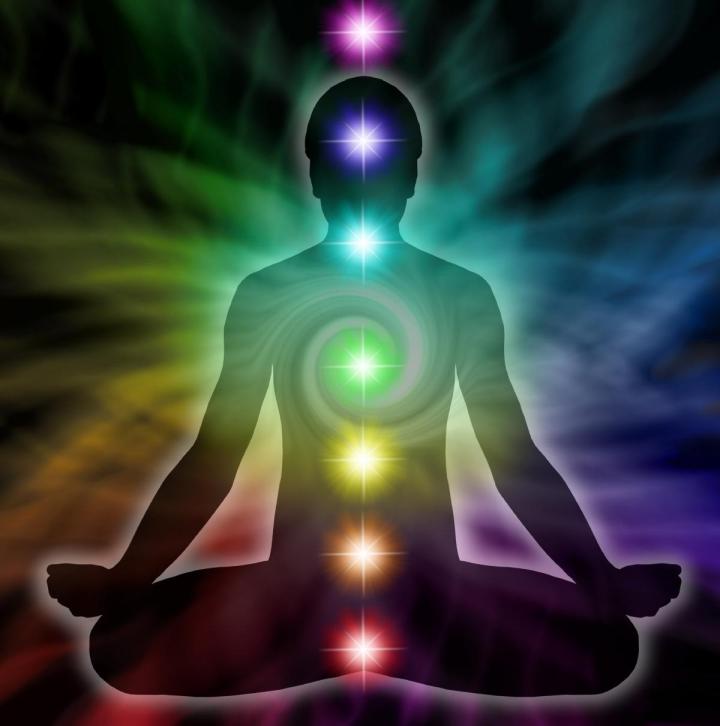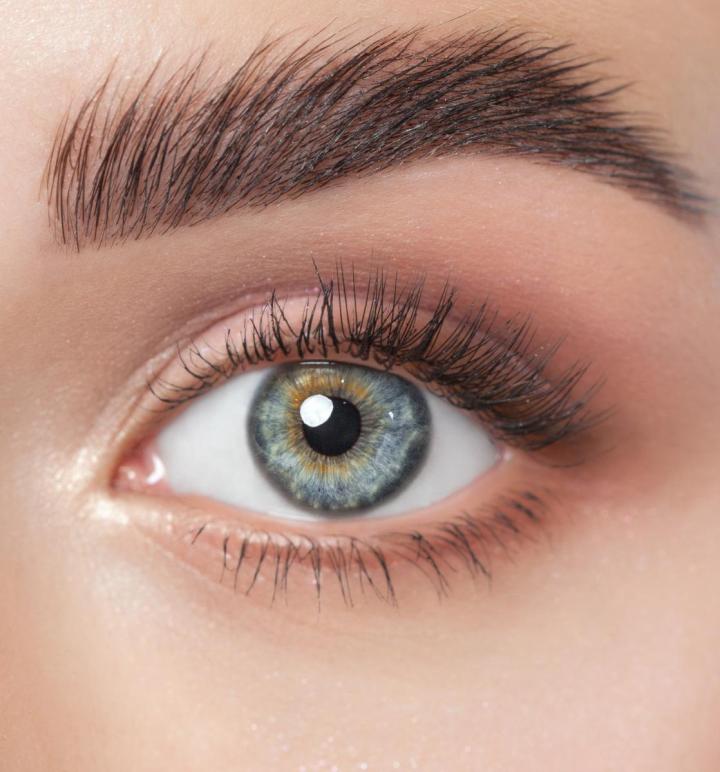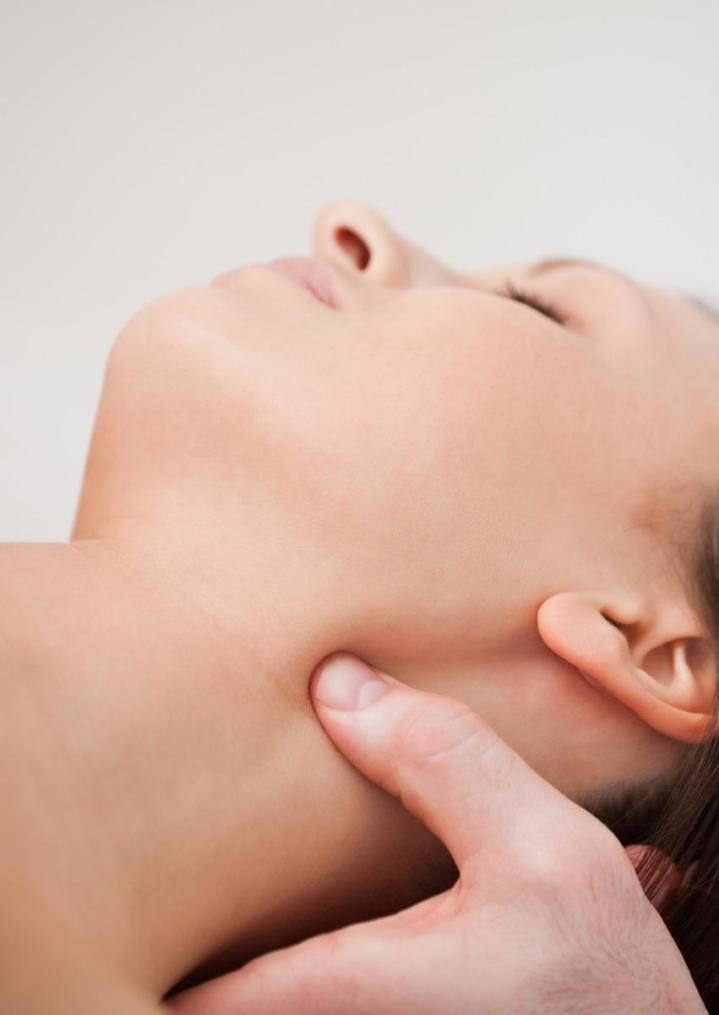Blog – Granby
Alkalifying foods to prioritize
The foods we eat can be classified into two main categories according to their effect on our body's acid-base balance: alkalifying foods and acidifying foods. This classification is based on the nature of the food's chemical components and their potential to generate acidity or alkalinity in the body.
Alkalifying foods
Alkalifying foods are characterized by their ability to promote alkalinity without generating excessive acidity in the body. Fruit options include apricots, cherries, bananas, cantaloupes, pears, apples, grapes, blackberries, raspberries, strawberries, figs, peaches and nectarines.
As for vegetables, root vegetables such as beet, carrot, parsnip, turnip, rutabaga, radish, celeriac, cauliflower, kale, potato, sweet potato, ginger and ginseng are considered alkalizing.
Green vegetables such as artichoke, asparagus, eggplant, broccoli, spinach, salad, fennel, cabbage, peas, kale, green beans, alfalfa, parsley, dandelion and bok choy also fall into this category.
Alkalifying oils include avocado oil, cod liver oil, coconut oil and olive oil.
Alkalifying nuts, seeds and legumes include almonds, pumpkin seeds, linseeds, sunflower seeds, sesame seeds, cashews and macadamia nuts. Breads, cereals and desserts such as millet, quinoa, kamut, spelt and brown rice are also considered alkalifying.
Finally, in the beverage category, water, beet juice, carrot juice, celery juice, mango juice, papaya juice, ginger tea and green tea are recommended.
Acidifying foods to limit
Acidifying foods, on the other hand, tend to generate acidity in the body and should therefore be consumed in moderation. Acid-forming fruits include cranberries and rhubarb.
Acid-forming vegetables include artichokes and corn.
As for meat, poultry and fish, lamb, bacon, shrimp, liver, hamburger, lobster, rabbit, chicken, sausage, salmon and steak should be limited. Dairy products and eggs such as cheeses, cheddar, cottage and cream products are also considered acidifying.
Refined oils and foods such as peanuts, soy beans, bagels, saltine crackers, croissants, whole-wheat bread, whole rye bread, cornmeal and corn tortillas should also be consumed without excess.
As for beverages, alcohol, pineapple, orange, grapefruit and apple juices, soy beverages, soft drinks, coffee, chocolate and milkshakes should be limited as part of a diet designed to maintain acid-base balance.
In summary, a balanced diet should include a variety of alkalifying and acidifying foods, while ensuring that an overall balance is maintained to promote optimal health.
Before making any significant changes to one's diet, it is always advisable to consult a health professional to ensure that individual nutritional needs are adequately met.
Get in touch with your naturopath, Marie-Claire Boutin!
Body pH and acidity
Body pH plays an important role in maintaining the body's overall health. The accumulation of toxins causes an acid imbalance in the body, prompting the body to protect itself by using buffer systems.
But when these systems are overloaded, the body mobilizes minerals to support vital organs and bones to dissolve acidity, with the aim of safely eliminating it. Unfortunately, this prolonged process can weaken organs and bones, increasing the risk of osteoporosis and other problems.
As a result, high levels of acidity can have a negative impact on several bodily systems, including the digestive, intestinal, circulatory, respiratory and immune systems.
Although less frequent and usually caused by medication, high alkalinity can lead to similar problems to those caused by acidity. However, it is more difficult to restore the pH balance in an alkaline body, especially as it takes longer.
What factors can affect pH ?
Stress is a factor that can increase the production of acidic toxins in our bodies.
An imbalanced diet, characterized by a lack of fruit and vegetables, excessive consumption of refined and devitalized foods, saturated fats and red meats, can also contribute to a state of acidity.
Poor elimination of toxins also affects the acid-base balance. The kidneys, liver, colon, lungs and skin are important organs for eliminating toxins. If their function is compromised, this can lead to an accumulation of acidic toxins in the body.
A lack of oxygenation also influences pH balance. Insufficient respiration or an oxygen-poor environment can lead to excessive acidification.
In addition, constipation can cause an imbalance in the intestinal microbiota. When stools are not eliminated regularly, harmful bacteria proliferate in the intestine, disturbing the acid-base balance.
The undesirable effects of high acidity
Scientific studies reveal that excessive acidity in the body leads to demineralization, which can result in problems such as osteoporosis, arthritis, osteoarthritis and many others. In addition, metabolic acidity can be associated with symptoms such as fatigue, bad breath and digestive problems.
Other signs of high acidity include dark, strong-smelling urine, imbalanced intestinal flora, muscle and joint pain, skin conditions such as eczema, psoriasis and others, hyperhidrosis, cramps, fungal infections, headaches and more.
Many metabolic reactions require a neutral pH balance. Variations in pH (also known as acid-base balance) can compromise these reactions, particularly by affecting enzyme activity. This disruption has an impact on all the chemical reactions taking place in the body.

How can pH balance be restored?
It's essential to manage stress in order to restore the body's equilibrium. Take time for yourself and practice relaxation techniques such as meditation. Good oxygenation is also essential, so don't forget to breathe deeply and regularly to reduce the production of toxic acids.
In addition, a healthy, varied diet based on whole foods is important to provide the nutrients needed for good health. Don't forget to include a wide variety of fruit and vegetables, especially greens, in your diet.
Take care of your kidneys too, and remember to cleanse, tone and strengthen your body to promote the proper elimination of toxins at all levels. To achieve this, adequate hydration (between 1 and 2 liters of water a day) and periodic detox cures are recommended.
Ultimately, restoring the intestinal pH balance is very important for maintaining good health.
Ask your naturopath, Marie-Claire Boutin, to accompany you.
The benefits of naturopathy 2
As Dr. Bieler points out, nutrition is an essential component of health. However, it's vital to know which foods will benefit our well-being.
A nutrition consultation is an opportunity to obtain personalized advice according to each individual's glandular type, based on their dominant gland.
During this session, eating habits and maintaining a healthy weight are considered, while recipes adapted to the specific needs of each person's glandular type and lifestyle are suggested. The aim is to improve energy and quality of life.
The importance of the acid-base test
The acid-base test, assessing the pH balance between acidity, neutrality and alkalinity, is crucial. Acid-base balance or pH homeostasis is a complex function of the human body aimed at regulating the pH of blood plasma, generally between 7.38 and 7.42.
The term "acidosis" is used when pH decreases, and "alkalosis" when pH increases. Regulatory mechanisms involve respiration, kidneys, proteins and other biological systems.
Maintaining acid-base balance
The body does its utmost to maintain an acid-base balance. One regulatory mechanism involves modulating the frequency of pulmonary ventilation. In acidosis, the body intensifies breathing, and vice versa in alkalosis.
The kidneys, although slower to react, implement powerful mechanisms to regulate pH by eliminating excess acid or base through excretion.
In the case of chronic acidity, the body uses biochemical mechanisms to neutralize acidic elements. The consequences can be collateral damage, such as osteoporosis, as the body uses bases (alkaline minerals) to neutralize acidic elements.
It seeks these alkaline elements primarily in the diet. If these elements are not present in sufficient quantities, the body will have to find them elsewhere.
The role of the digestive tract in this process
The food we eat is transformed throughout the digestive tract, under the influence of digestive juices. These juices dictate the pH of the food bolus.
Initially highly acidic in the stomach, food is further broken down by the action of various enzymes and bacterial flora present in our intestines. However, these enzymes and flora are particularly sensitive to a specific pH in order to function optimally.
If these conditions are not met, the digestive process can be disrupted, leading to problems such as :
- constipation, gas and bloating due to abnormal putrefaction in the intestines,
- the production of toxic alkaloids (specifically ptomains produced by the putrefaction of animal proteins), causing auto-intoxication which must be neutralized by the liver,
- overworking the liver, causing toxins to pass into the bloodstream.
Regulation of the acid-base balance in blood and tissues
The body naturally produces acidity, mainly during the day as a result of cellular activity, including digestion and physical exertion. When this acidity becomes excessive or difficult for the kidneys and lungs to eliminate, it is temporarily stored in connective tissue.
Acidity overload is most noticeable during the day. This acid storage in connective tissue can occur even when the blood maintains a pH close to neutral. In fact, the acid-base balance of the blood remains a priority for the body, hence the limited variation in blood pH.
The body therefore works to purify the blood gradually, storing acids in connective tissue if they are too numerous to be eliminated in the time allowed by the kidneys and lungs. At night, acid production diminishes, allowing the connective tissues to eliminate excess acid from the blood and then discharge it via the kidneys and lungs.
This nocturnal phase is a cleansing period, corresponding to a healing process. If a single night is not enough to eliminate this acid waste, and the intake of new waste remains constant, you need to be very careful.
This could mark the beginning of a chronic illness, which may manifest itself much later, sometimes several years or even decades later. This predisposition to disease is simply linked to the fact that the body has a threshold of elimination per unit of time.
There are several buffer systems in the body that help maintain acid-base balance, such as Bicarbonates/Carbonic Acid: CO3H- / CO3H2, Hemoglobinates/Hemoglobin: Hb- / HbH, Oxyhaemoglobinates/Oxyhaemoglobin: HbO2- / HbO2H, Proteinates/Proteins: Prot- / ProtH, Bibasic Phosphates/Monophasic Phosphates: PO4H- / PO4H2 and Weak Dissociated Organic Acids: RCOO- / RCOOH.
While the optimal pH of blood changes little, the normal pH of urine varies between 4.6 and 7.8. A fixed variation may indicate a pathological condition.
In the chemical sciences, pH is used as a measure of a liquid's degree of acidity. Water, considered neutral, has a pH of 7.0. Any measurement below 7.0 is classified as acidic, with 1.0 representing the maximum possible degree of acidity. Conversely, any measurement above 7.0 is considered alkaline (or basic), with maximum alkalinity set at 14.0.
The human body, its blood and all its fluids are characterized by a measurable pH. Each cell, organ and body fluid requires a specific pH level to ensure optimal performance. The enzymes present in the human body adopt a particular configuration according to the pH of their environment, and are particularly sensitive to the degree of acidity.
Their proper functioning depends on the presence of a specific pH. This sensitivity is even more marked in the case of blood, where any fluctuation in pH can alter the structure of hemoglobin, influencing its ability to bind oxygen.
The optimum pH of blood is between 7.3 and 7.35, while that of saliva oscillates between 6.5 and 7.5. Urine has a pH between 6.5 and 7.0 (and may be slightly lower in the morning, between 6.0 and 6.5), while the pH of the colon varies between 4.5 and 5.0.
These variations in pH in different parts of the body testify to the complexity of the balances required for proper physiological functioning.
To find out more, consult your naturopath Marie-Claire Boutin.
The 4 pillars of health
The foundations of health rest on 4 essential pillars, each of which contributes significantly to the balance and well-being of the individual.
The first pillar, inspired by the teachings of Hippocrates, emphasizes the principle of "do no harm". Hippocrates wisely pointed out that, in the face of ailments, it is essential to have two objectives in mind: to do good or, at the very least, to avoid causing harm.
The doctor's role is to observe symptoms carefully, as they are often indicators of the healing process underway. Hasty suppression of symptoms can sometimes worsen the situation. This leads to "morbid transference", where the persistent cause expresses itself elsewhere in the body, usually in a more pronounced form.
The second pillar is based on the use of natural remedies. Nature itself has an intrinsic healing power. A healthy human organism possesses the capacity for self-healing, capable of restoring health autonomously. The mission of the physician or therapist is to facilitate the harnessing of these forces by identifying and removing any obstacles that may stand in the way.
The third pillar, again in line with Hippocrates' philosophy, emphasizes the need to treat the underlying cause of an ailment. The naturopath's approach is not limited to acting on symptoms, but aims to get to the root cause of pathology. By understanding and treating this root cause, the natural balance can be restored, allowing the symptom to no longer manifest itself.
Finally, the fourth pillar is education. The naturopath plays the role of trainer, teaching his or her patients the principles by which the body functions and providing them with the knowledge they need to care for it naturally.
The rules of vital hygiene encompass all aspects of life, taking into account the interactions between the physical, mental, emotional and spiritual planes. Consideration of each of these levels is essential to regaining and maintaining optimal health.
In support of these four pillars, the naturopath has 10 techniques at his disposal, which he applies synergistically as part of a cure, without necessarily using them exhaustively.
Nutrition, physical exercise and mental management are the 3 major and fundamental techniques. Every naturopathic consultation includes recommendations in these 3 areas.
Make an appointment with your naturopath, Marie-Claire Boutin.
The terrain of the human body and prevention
"Naturopathy and immunity optimization: a holistic approach to optimal health".
With its focus on prevention and practice, naturopathy is a discipline that promotes the restoration of health, while educating the public on how to preserve it. Its fundamental principle is to stimulate the body's natural self-healing mechanisms.
The many tools available to naturopathy are designed to restore vital energy and strengthen self-healing capacity, contributing to a global awareness of health. The essential principles of this approach include detoxification, regeneration, revitalization and stabilization, forming the basis of a naturopathic cure.
Depending on individual needs, the naturopathic practitioner will suggest adjustments to lifestyle habits, such as diet, exercise, stress and environmental management. He or she may also recommend natural products to overcome vitamin and mineral deficiencies, revitalize the body or purify certain organs.
You can consult a naturopath as a preventive measure, as a complement to medical treatment or simply to improve your quality of life.
Following a comprehensive health assessment, including functional tests, analysis of health indices and interviews, the naturopath will draw up a personalized action plan. This action plan aims to:
- Increase vitality, improve sleep and strengthen concentration;
- Achieve a healthy weight;
- Solve skin, hair and nail problems;
- Balance the nervous system and regulate hormonal disorders;
- Improve digestive system function and promote toxin elimination;
- Strengthen the immune system;
- Support before, during or after pregnancy;
- Facilitate the management of premenopause and menopause, including hormone therapy options;
- make recommendations in cases of intolerance, whether to gluten or other substances.
For all these benefits, call on Marie-Claire Boutin, your naturopath in Granby.
The benefits of naturopathy
No clinical trials are currently available to prove the overall effectiveness of naturopathy as an integrated system.
However, several approaches and techniques associated with naturopathy have been subjected to clinical trials, including nutrition, balneotherapy, aromatherapy, gemmotherapy, colon hydrotherapy, fasting and more.
Among several disciplines, phytotherapy (or herbalism) has been the most extensively studied. A review of systematic syntheses of clinical trials in 2003 revealed that of 34 syntheses analyzed, 20 focused on the use of medicinal plants.
It was also revealed that the supplements most frequently recommended by naturopaths involve medicinal plants, to treat high cholesterol levels and the agents responsible for various infections.
So, naturopathy is used in many aspects of health.
With regard to premenstrual syndrome, for example, naturopaths suggest dietary modifications, especially vitamin D3 and calcium intake.
Indeed, these elements have been shown to have an impact on certain symptoms linked to this syndrome.
As part of the weight-loss process, the naturopath will carry out an individual assessment to suggest appropriate measures in terms of diet and physical activity.
The aim is to promote long-term weight loss. This may include increasing consumption of essential fatty acids as opposed to carbohydrates.
Naturopathy is also considered beneficial for strengthening the immune system and treating allergies. To do this, underlying immune dysfunctions must be identified and corrected. Dietary adjustments and the use of natural remedies are often recommended.
In the case of osteoarthritis, naturopathy suggests a holistic approach involving lifestyle changes through diet modification. The use of herbs such as devil's claw and ginger, known to reduce the pain and symptoms of osteoarthritis, is also recommended.
For those seeking to quit smoking, naturopaths recommend the use of herbs such as Kudzu to alleviate addiction by stimulating dopamine production.
In addition, supplements such as magnesium for fatigue and St. John's Wort with its antidepressant properties are suggested to relieve withdrawal symptoms.
Want to find out more about the benefits of naturopathy? Contact your naturopath, Marie-Claire Boutin.
Who is naturopathy for ?
Naturopathy is aimed at a wide audience, regardless of age or physical condition. Early prevention makes it possible to treat imbalances as soon as they appear, as this increases the chances of restoring optimal health.
Ideally, the practice of naturopathy should begin at an early age, when acute pathologies are present and the vital force is at its peak.
But although the approaches are natural, there are also contraindications, depending on the individual profile. For example, certain essential oils are not recommended for pregnant women.
Precautions should also be taken for people with fragile intestines, such as children and babies. Likewise, therapeutic use of licorice may be contraindicated for those with a medical prescription for high blood pressure.
It's best to seek the advice of an experienced professional like Marie-Claire Boutin, your naturopath in Granby.
The naturopath: a true gentle doctor?
In the States where naturopathy is legally recognized, the professionals who practice it are regarded as true doctors, able to manage emergency situations as well as chronic ailments.
Their role can be likened to that of a general practitioner, empowered to carry out examinations, make diagnoses, prescribe and administer treatments.
Naturopaths can even perform minor procedures such as removing warts or suturing wounds. When the situation is beyond their field of competence, they refer patients to experts such as doctors, surgeons, osteopaths or homeopaths.
In other parts of the world, naturopaths are seen more as health consultants.
Aside from the treatment of chronic and degenerative diseases, they mainly resolve minor problems that do not require an advanced medical approach.
They favor approaches characteristic of naturopathy, such as nutritherapy and lifestyle changes.
An increasing number of naturopaths sit on working committees that oversee medical research and public health policy, in collaboration with medical and government authorities.
Becoming a naturopath
- Naturopathic training varies from country to country, and generally includes courses in :
- medical sciences: biology, anatomy, physiology, immunology and more,
- clinical medicine: diagnostics, laboratory, naturopathic principles and more,
- specialized techniques: nutritherapy, homeopathy, phytotherapy, hydrotherapy, Chinese and Ayurvedic medicine.
- Particularly in Germany, naturopathic studies are an integral part of the training of doctors and pharmacists.
The practice of naturopathy
The approach to a naturopathic consultation is similar to that of a conventional clinic, but with a particular emphasis on understanding the root causes of ailments.
The naturopath asks in-depth questions about general health, lifestyle, eating habits and even stress levels at work.
Before proposing treatment, the naturopath seeks to identify the origins of the problem, such as a musculoskeletal or nutritional disorder, lack of sleep or excessive stress.
In countries where naturopathy is authorized, professional associations can keep a register of their members.
Initial consultations with a naturopath generally last between an hour and an hour-and-a-half, while subsequent consultations vary from 30 to 60 minutes.
More and more insurance companies are covering the cost of naturopathic consultations, but it's advisable to check with your insurer.
The digestive system
Digestive function is closely linked to the parasympathetic autonomic nervous system. The latter, associated with a state of relaxation, promotes the secretion of digestive fluids such as saliva, facilitating the digestion process.
On the other hand, stress linked to the sympathetic autonomic nervous system has the opposite effect on the digestive system. Scientific research has shown that well-being and relaxation help to reduce the liver's production of bad LDL cholesterol, thus promoting an increase in good HD cholesterol.
In the presence of excess LDL in the blood, lipids tend to accumulate on artery walls, particularly if these have been irritated by hypertension, often caused by stress.
Massage therefore plays an essential role in reducing the risk of atherosclerosis.
This disease is characterized by the accumulation of fatty deposits in the arteries of the heart, hindering their ability to dilate. But although digestion is associated with the parasympathetic nervous system, it is not advisable to eat a heavy meal before a massage session.
This is because blood is directed to the areas being massaged, rather than to the digestive system. What's more, in the horizontal position, an overfull stomach could interfere with the proper functioning of the heart muscle and breathing through the diaphragm. A small snack, fruit or light meal before the massage session is the most appropriate option.
Contact your naturopath!
Prayer to Divinity
O Divinity, let your energy flow through me and guide me to forgive myself for helping to create this painful reality.
Help me learn to love myself and feel gratitude for the precious gift of life, recognizing the value of my existence.
Divinity, I place in your hands all the negative memories and vibrations that have passed through my being, so that you may transform them into a beneficial light for every being of your creation since the origins of humanity. So be it.
To free my subconscious of the emotional charge it carries, I recite the 4 healing words several times a day: "I'm sorry, forgive me, thank you, I love you".
Contact the therapists at Centre De Santé Équilibre De Vie in Granby.
HO'OPONOPONO Meditation 4 Healing Words
"I'm sorry, forgive me, thank you, I love you".
These are "The 4 Healing Words", considered to be very powerful self-healing methods.
They use the love expressed through the words you speak to reach your subconscious, where memories that can hinder vital processes reside.
This approach, entitled "The 4 Healing Words", is inspired by Hawaiian philosophies and aims to heal memories, individuals, spaces and situations.
The practicality of this method lies in the fact that it can be practiced at any time of day, without requiring a specific state of relaxation, even during other activities.
By using these 4 words, it becomes possible to eradicate emotional or physical pain at source. Acknowledging these memories as such, and expressing gratitude for their resurfacing, helps to heal them.
In the same way, restoring inner peace and relational equilibrium in the face of relational conflicts is perfectly feasible thanks to the 4 Healing Words.
The cleansing process begins by establishing a shared consciousness with the people involved and asking forgiveness for the difficult moments caused in the past.
The "4 Healing Words" also work by freeing the mind from the mental trap of convincing others to change or pretending to change their behavior.
This individual inner practice cleanses and transmutes memories of the past, transforming them into pure light that allows inspiration from Divinity.
The frequency with which the 4 Healing Words are practiced directly influences the healing of painful memories, without reliving them.
These words are addressed to the divinity within each of us, to our inner God or Goddess, as well as to humanity as a whole, with its history of suffering that defines our identity.
Hearing the keys to our own personal story can help us find greater satisfaction and a sense of belonging to our place on this planet.
Naturopathic consultation or self-supplementation?
On the one hand, a naturopath can advise you on the best supplements to treat the cause of your health problems, by analyzing your situation holistically. Their approach is designed to restore nutritional balance, while providing support tailored to your symptoms.
Today, the importance of supplements is increasingly evident, highlighting the potential risks of adverse effects or interactions with other medications. The naturopath assesses these aspects to adapt the treatment to your situation.
On the other hand, a person opting for self-supplementation is faced with a multitude of choices. They often find it extremely difficult to choose the products best suited to their needs.
This is partly due to the fact that current labelling regulations do not provide precise therapeutic indications for supplements.
What's more, the quality of natural products on the market varies considerably. The naturopath, as a qualified resource, is able to discern the quality of these products and will recommend the safest supplement for your situation.
Choose an experienced naturopath like Marie-Claire Boutin.

How is alternative medicine evolving in Canada?
Surveys conducted in 1996 revealed exponential growth in alternative medicine.
The majority of the population (51%) is aware of these practices, and 15% of Canadians use them, with an estimated annual increase of between 10 and 15%. Naturopathy is gaining in popularity in Canada, a trend that is set to continue as the population ages.
The market, dominated by the highly educated Baby-Boomer generation, is showing particular interest in natural health approaches. These more health-conscious individuals are well-informed about the impact of diet and lifestyle on their health.
The power of intention
Law of attraction : do our thoughts
create our reality ?
The writer Leo Tolstoy once said that, to be happy, all you have to do is want to be happy. This ties in with the intriguing notion of the "Law of Attraction", presented as a key to happiness. But what is this law, and how does it really work ?
Understanding the law of attraction
The term "Law of Attraction" may come as a surprise at first, especially when compared to the physical law enunciated by Newton and revised by Einstein.
According to Slavica Bogdanov, author of a small workbook on the Law of Attraction, this rule of life is based on the idea that everything in the universe is made up of energy and emits a frequency. This energy encompasses not only matter and energy, but also our attitudes and thoughts.
The vibration of the latter is said to have the power to influence our environment, attracting to us experiences and encounters in line with our state of mind.
Origins of the Law of Attraction
Appearing as early as 1906 in William Walker Atkinson's "The Vibration of Thought and the Law of Attraction in the World of Thought", the concept was initially applied to the realm of the psyche. It highlights the power of will, concentration and suggestion in the creation of our reality.
In medicine, the influence of the mind on the disease and healing process has become undeniable. Vadim Zeland, Russian physicist and author of the bestseller "Transurfing", even suggests that quantum theory can explain this influence.
According to this approach, reality is a network of connections and potentialities, where the observer's intention can actively shape our lives.
The impact of emotions on the Law of Attraction
"The Secret" points out that negative emotions, such as anger, depression and guilt, emit harmful vibrations that attract unfavorable experiences. Conversely, enthusiasm, love and gratitude have the power to shape a positive future.
Slavica Bogdanov confirms this idea, pointing out that everything that happens to us, both the best and the worst, stems from our thoughts and behavior. Taking responsibility for our environment gives us the power to change it.

Gratitude
Establishing gratitude in our hearts is an essential key. Every time we let the feeling of gratitude vibrate within us, we awaken the creative power of our soul. Whatever our current difficulties, choosing to express gratitude allows us to regain our confidence.
Abundance flows from this practice, and it's by appreciating what we have now that we expand our future potential. By putting aside doubts and fears, we call upon the magic of our soul to shape our reality.
True love - unconditional love
The teachings on true love invite us to think deeply. Love, according to these teachings, is a quality of pure friendship, where the simple presence of the other generates joy.
Far from being exploitative, true love does not seek to possess, but to offer freedom and support. Fear, often present in relationships, is described as the result of an attempt to control.
Loving intensely and totally, without worrying about tomorrow, becomes the ultimate criterion of love. True love is not a possession, but an unconditional appreciation of what is.
In conclusion, exploring the Law of Attraction leads us to recognize the link between our thoughts, our emotions and our reality. Gratitude emerges as a powerful practice, capable of transforming our lives.
True love, devoid of possessiveness, offers a liberating vision of human relationships. By embracing these principles, we discover the potential to create a reality aligned with our deepest aspirations. The power of the mind thus lies in our ability to consciously direct our thoughts, creating the reality we wish to manifest.
Holistic medicine
The specialist's words
Naturopathy, an authentic holistic medicine, is distinguished by its curative and preventive approach. It aims to maintain optimal health by following the immutable laws of Life. From an early age, learning to live in harmony with nature helps to avoid imbalances leading to illness.
A holistic approach to naturopathy
Naturopathy transcends the simplistic idea that eating well is enough. It recognizes the importance of balance, considering that health results from the complex interaction between diet, physical activity, stress management, emotional well-being and the environment.
The naturopath does not confine himself to standardized advice, but explores all aspects of your life, creating a holistic approach to your well-being.
References
To deepen your understanding of naturopathy, a number of enlightening references can be consulted. These include JC. Magny, "La naturopathie apprivoisée" (Éditions de Mortagne, 1996), offers an instructive perspective.
Similarly, D. Novey's "Clinician's Complete Reference to Complementary/alternative Medicine" (Mosby Inc., 2000) is a valuable resource. The "Textbook of Natural Medicine" by M. Traub, M. T. Murray, and J. E. Pizzorno (2013) offers an in-depth exploration of natural medicine.

The naturopathic health practitioner as your guide
Although the changes required may seem daunting, the naturopathic health practitioner is there as a guide. He or she guides you towards a life in harmony with your deepest needs.
Whether through immediate transformations or long-term adjustments, the naturopath adapts to each individual. Each consultation is unique, adapted to the specific needs, means, rhythm and circumstances of each individual.
In short, naturopathic holistic medicine is an integrative approach to health, encompassing all aspects of life. By embracing its principles, we are committed to maintaining a dynamic balance between diet, physical activity, stress management, emotional well-being and the environment.
Each individual is unique, and naturopathy, with its personalized approach, offers a path to optimal health and lasting well-being.
Chromotherapy Glasses
MP3 Glasses: Innovative fusion of light and relaxation therapy
MP3 goggles are a revolutionary breakthrough, an ingenious combination of light and relaxation therapy. Over 200 programs are carefully adjusted to suit your needs, whether for self-hypnosis, meditation or a turbo nap.
Treat yourself to a unique experience with a 30-minute free trial by appointment. We look forward to helping you discover the benefits of this innovative technology.
The influence of color on physical and psychological perception
MP3 glasses are a tool that uses the power of color to influence both our physical and psychological perception.
This approach, which has been around since Ancient Egypt, offers a range of possibilities for reducing or increasing the intensity of physical pain and emotions.
You can choose the color of your glasses by listening to your intuition, following your feeling, and responding to the needs of your body and mind.
The impact of colors on daily well-being
Enjoy the pleasure of wearing glasses that are fun, fashionable and beneficial to your daily well-being. Depending on the weather, you can choose the right color to brighten up your day.
For example, yellow glasses will bring a sunny glow to your head and heart, leaving you radiant and focused even on cloudy days.
Practical tips for use while driving
Be vigilant when wearing your glasses while driving. Lens color can influence light intensity and visibility. Make sure you choose the right tint for a safe and pleasant driving experience.
Explore the many facets of MP3 Glasses, combining light therapy and relaxation therapy for an exceptional sensory experience.
Enjoy the customizable benefits of color and discover a unique way to enhance your physical and emotional well-being on a daily basis.
Personalized use of colors
You can personalize your experience by choosing a specific color to achieve the desired results. Consult the table of colors and meanings to improve your emotional and mental state. Wear your glasses with style and kindness to enhance your well-being.
Room Rentals for classes or workshops
Yoga, Tai-chi, Qigong, meditation room rental
Discover our space dedicated to the practice of yoga, Tai-chi, Qigong and meditation. Planning workshops or training courses? Rent our spacious rooms for your activities. Flexible hours from 8:30 a.m. to 5 p.m., with evening rentals available.
Rates are attractive at $20 per hour, $110.00 per day, and $45 per half-day for workshops, conferences, meditations, training sessions and much more.
Contact Marie-Claire Boutin at 450-775-4215 for room availability.

Marie-Claire's Commitment as a Naturopath
As a graduate of the École de Naturopathie du Québec, I have the unwavering confidence and in-depth knowledge to assist and guide my clients towards optimal well-being.
Ready to change your eating habits, I invite you to embark on a journey towards revitalized, more energetic and vibrant health, respecting your needs at your own pace.
As a Naturopath, Massage Therapist and Life Coach, I'm also the director of the Centre de Santé Équilibre de Vie. You now have a versatile expert to guide you.
Marie-Claire Boutin, your Naturopath, offers you a personalized consultation aimed at restoring balance to your health. We can all benefit from support at some point, whether to treat a specific disorder, prevent potential problems, or simply deepen our understanding of overall health.
Come in today to assess your vitality, so you can better understand any challenges or imbalances you may be experiencing in your body. You have the power to choose; your health is in your hands.

N.B. : It's important to note that only doctors, in the exercise of their profession, are empowered to make medical diagnoses and establish treatments. Marie-Claire Boutin's advice in no way replaces the medical recommendations of a health professional. Use your best judgment in your quest for well-being.
Inspired by Marie Claire
A dream come true
In the business world, making a dream come true is an exciting adventure. In 2018, I'm bringing to life my Holistic Health Center, a dream that's been germinating inside me for over 20 years.
This adventure began in autumn 2008, when I embarked on various training courses, starting with naturopathy and later embracing energy rebalancing, lymphatic drainage, reflexology, craniosacral therapy, massage therapy, shiatsu, fasciatherapy, hypnosis, and many others. A holistic approach to well-being encompassing body, mind and soul.
My center offers a room dedicated to conferences, workshops, training courses, yoga, TaiChi, Qi-Gong and meditation. In our forthcoming boutique section, you'll discover a selection of top-quality supplements and natural products.
We also offer an aesthetic range for body and face, including anti-aging serums and sun protection.
About me
I'm an active, sensitive and generous woman, mother of five wonderful children and grandmother of seven grandchildren. Curious and passionate, I accompany you in the pursuit of your wellness goals, with respect, welcome and balance, always keeping in mind that health is the key to happiness.

Iridology
Iridology is an analytical science specializing in the observation of the eye through the iris and sclera. This discipline reveals crucial information about overall health by identifying various terrains and signals.
Mineral imbalances and associated risks : certain demineralized terrains can present potential risks such as osteoarthritis and osteoporosis. By observing the iris, we can anticipate these specific problems.
Dermatological conditions and cutaneous revelation : iridology highlights dermatological areas that may be prone to developing conditions such as eczema, psoriasis and other skin problems. Signs in the iris offer valuable clues to these conditions.
Iridology: a natural preventive and curative approach
It's important to note that iridology is not a diagnostic tool, but rather a method of analyzing tissue condition based on signs observed in the iris. Its therapeutic approach focuses on natural preventive and curative methods, aimed at promoting overall health.
If you'd like to find out more, we invite you to make an appointment with Marie-Claire Boutin, Iridology expert. Gain insight into your well-being and explore the possibilities of a holistic approach to eye health.

Spasmodic dysfunctions and their manifestations : iridological examination can reveal areas prone to digestive or intestinal disorders, or even spasmophilia. This approach enables us to anticipate problems linked to spasms and intestinal disorders.
Brain-organ communication and the importance of the eyes : science shows that the brain is in constant communication with all parts of the body, emitting impulses and registering organic activities.
The eyes, as direct extensions of the brain, play an essential role in this process, as confirmed by embryonic development.
The iris circles, each representing specific aspects, are also significant markers in iridological analysis. Each point offers valuable information on health and well-being.
Massage
Massage therapy services
Swedish massage: a therapeutic and relaxing technique
The Swedish massage technique, involving pressure, kneading and vibration of the hands on different parts of the body, is both relaxing and therapeutic.
Its aim is to reduce muscular tension, pain and spasms, providing a sensation of relaxation and well-being.
By understanding the workings of the human body, its musculature and the language of pain, this approach provides practitioners with greater neutrality and a deeper understanding of the problems encountered by their clients.
Physiotherapy: a holistic approach to physical well-being
Focusing on massage and mobilization, physiotherapy aims to restore musculo-articular mobility, from muscle relaxation to the management of chronic back pain.
By focusing on deep muscles, their attachments and actions, the physiotherapist becomes a leading holistic therapist.
This comprehensive approach takes into account indications for massage, the damaging effects of physical inactivity and posture, offering a personalized response to diverse health needs.
Posture: a key to pain prevention
80% of medical consultations are related to pain, often attributed to poor posture. However, proper postural correction is essential to avoid chronic muscular and joint pain.
The study of posture is not limited to physical observation; it also encompasses the postural tonic system (PTS), a little-known component that influences posture according to the information it receives. Understanding the PTS allows us to better understand recurrences in pain treatment.
Discovering the postural concept means understanding that the human body is a structured whole, affecting its proper biomechanical, neurophysiological, psychic and energetic functioning. Entry points such as the eyes, manducatory apparatus, feet and even scars can influence posture.
Asymmetrical eye tension, for example, can have repercussions on muscle chains and be reflected in posture, influencing aspects such as concentration, balance and even academic success.
Joint mobilization: a gentle yet effective approach
Understanding the structure of bones and joints, and mobilizing them gently, is a valuable skill. By refining touch, practitioners can observe tissue relaxation, particularly in the fascia surrounding joints.
The tactile sense, combined with full awareness, offers a profound understanding of the body and its environment, influencing our sensory perception through our emotions, thoughts, beliefs and upbringing.
Craniosacral Therapy
What is craniosacral therapy?
Cranio-sacral therapy focuses on manipulations performed on the cranium as well as on the entire trunk up to the sacrum. Its main aim is to assess and rebalance the cranio-sacral rhythm, resulting from the circulation of cerebrospinal fluid from the cranium to the sacrum, and vice versa.
This gentle therapeutic approach uses light pressure to work with the membranes surrounding the brain and spinal cord. Inspired by osteopathic techniques and the teachings of John Upledger, osteopath D.O., craniosacral therapy enables us to perceive the undulating movements of these membranes throughout the craniosacral system with a delicate touch of just 5 grams.
By targeting aspects such as symmetry, amplitude and quality of rhythm, inherent to this fluid circulation, we support the body's natural tendency towards homeostasis, thus promoting self-regulation.
This therapeutic work is beneficial not only for painful syndromes, chronic and acute conditions, but also for cellular memories and emotions stored in the body.
Craniosacral therapy sessions take place with the client clothed, lying on a massage table, and are suitable for all ages, from newborns to the elderly.
Despite their gentleness, the manipulations are particularly effective in relieving fatigue, stress, headaches and migraines.

- Fee: $70 with insurance receipt.
- Each session lasts 60 minutes.
To book an appointment with Marie-Claire Boutin, please contact us.
Biospect
Alternative care services
In a context where the body is constantly adapting to external and internal influences, Biospect is emerging as an approach to identifying the body's responses.
This technique compares these responses to a rich database of microbial strains, toxins, allergens and more, enabling remarkable precision in maintaining holistic balance.
Biospect excels in its capabilities, offering:
- In-depth analysis of the evolution of the body's terrain towards a pathological state.
- Corrective action through bio-resonance.
This innovative approach not only promotes understanding of internal dynamics, but also the implementation of targeted solutions through bio-resonance.

Pricing is set at $80/hour, with the option of a receipt or invoice for insurance purposes.
Discover how Biospect can be your ally in maintaining harmony and balance in your well-being.
